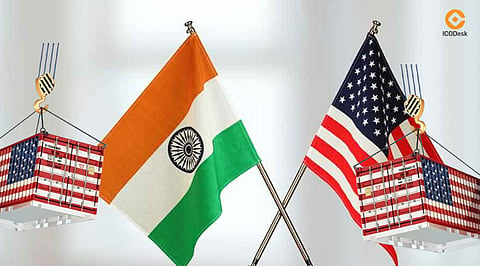

Indian and American trade officials ended a one-day conference in New Delhi with an agreement to accelerate the pace of achieving bilateral trade agreements. The Indian party delegation, headed by their chief negotiator Rajesh Agarwal, met with the Office of the US Trade Representative (USTR) under Brendan Lynch. The officials said the exchanges were futuristic and optimistic.
The commerce department of India stated that the two countries realized the need to enhance bilateral trade. The department said the talks would proceed with the aim of reaching an early agreement on a win-win deal. A spokesperson of the US embassy also mentioned the positive result, pointing out that the negotiations included the further stages of the process.
The meeting came after tense relations characterized by tariff differences. President Donald Trump has recently taken a tone of reconciliation, indicating that he is willing to engage again. Tariff measures had postponed the sixth round of negotiation, which was to be held at the end of August. Still, government representatives are now looking to hold future discussions on virtual platforms before deciding on new dates.
Sources showed that the recent exchanges would offer relief to exporters. The lifting of tariffs on domestic products in Washington has posed a significant challenge to Indian exporters. Although the tariffs were initially 25% since the beginning of August, they increased to 50% following the introduction of other sanctions connected to India's purchase of Russian oil.
The US has persistently urged India to reduce importation taxes on industries such as cars, whiskey, milk, and farm produce. Trump has used high tariffs on American goods to complain about India being the tariff king. New Delhi has expressed its readiness to liberalize the tariffs on industrial products, but is also strict on imports of products of a farming nature.
India has complained of domestic sensitivities in other parts, like dairy, maize, and soybean, where local manufacturers fear intense foreign competition. Washington's demand for expanded market access has thus been met by opposition, resulting in added tariffs on Indian exports in retaliation. According to trade experts, future negotiations should strike a balance between these priorities in order to conclude on a sustainable agreement.